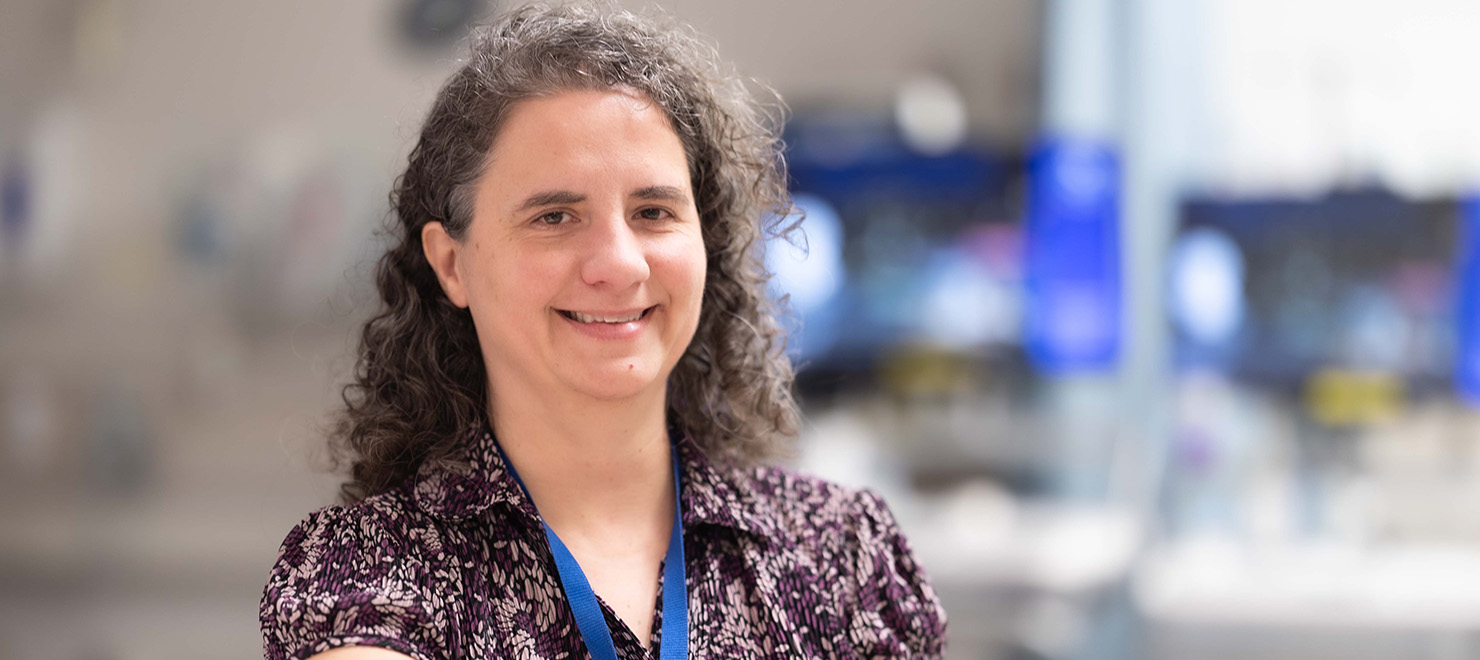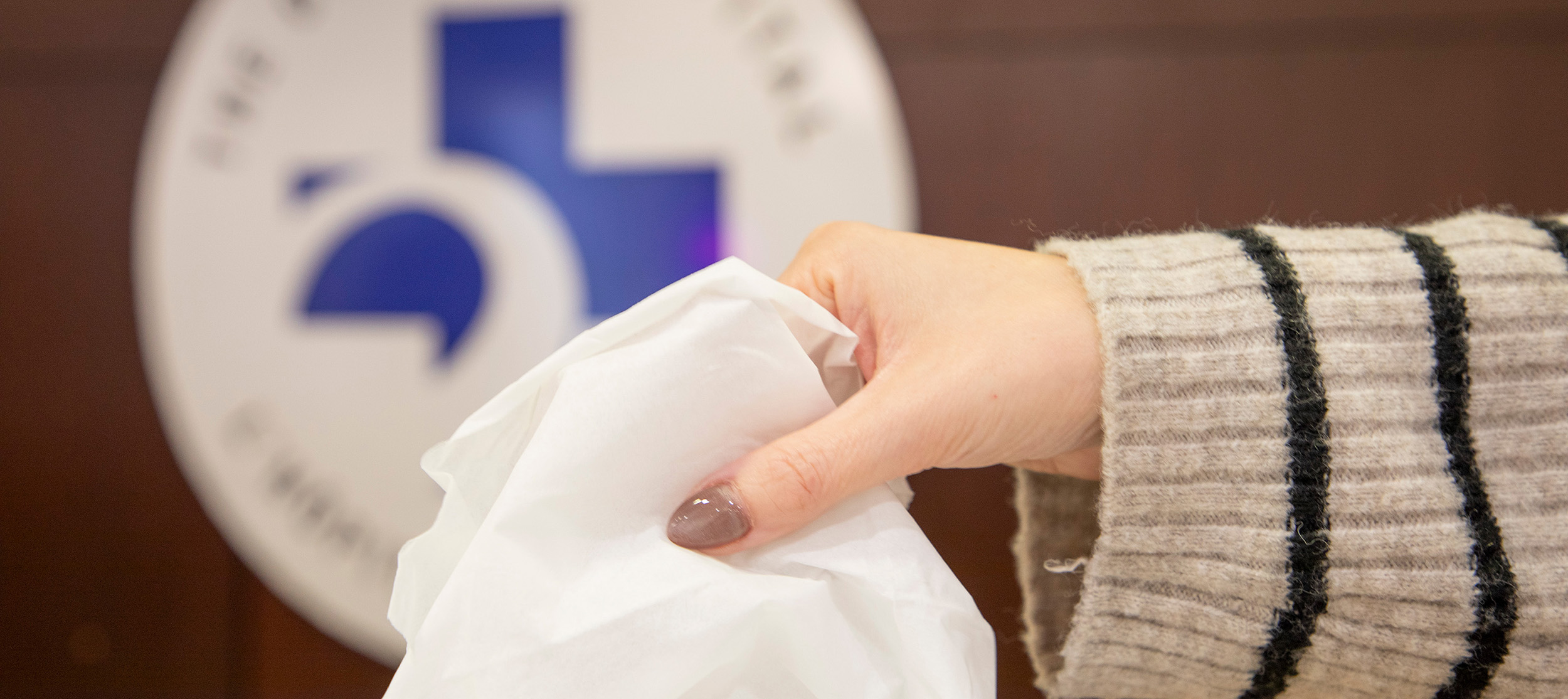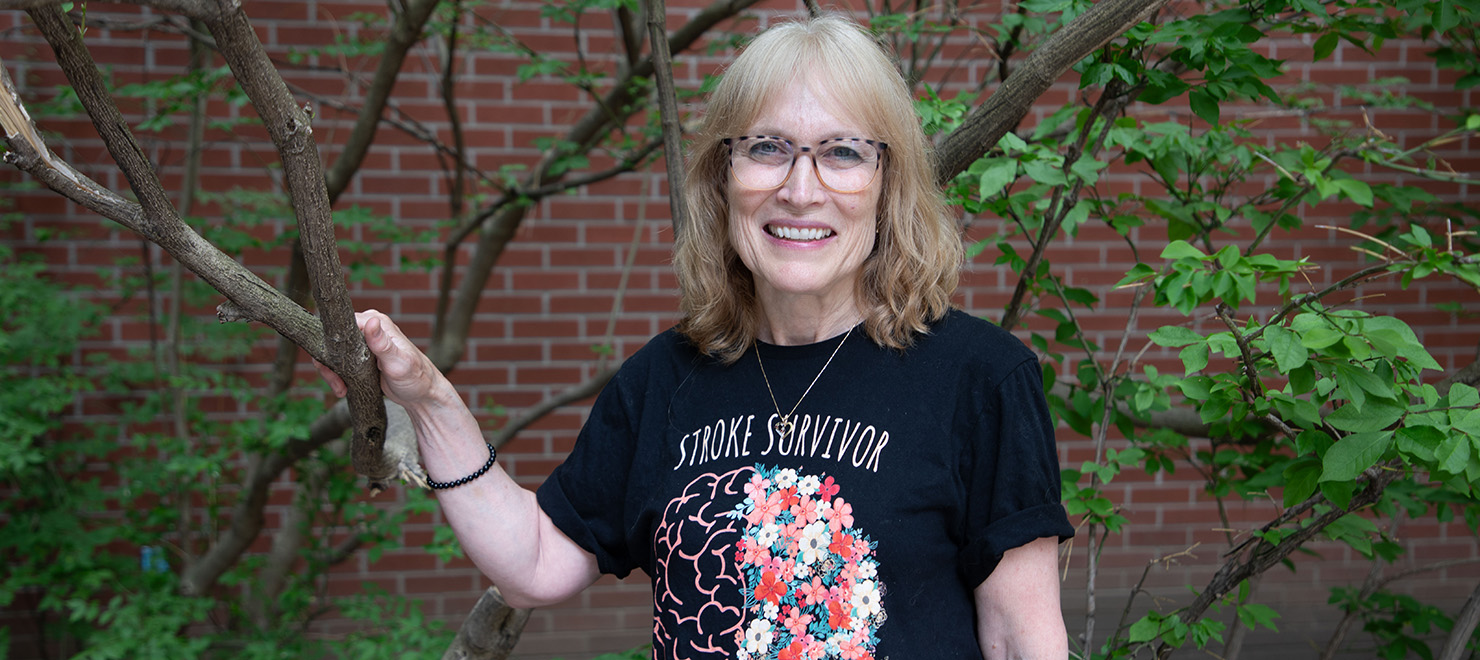
Better communication leads to a better patient experience.
The Ottawa Hospital is committed to providing excellence in language interpretation services between patients and their caregivers. For our patients who are Deaf or hard of hearing, you have a legal right to receive care in American Sign Language (ASL) and Langue des Signes Québécoise (LSQ).
“Proper communication is key to helping patients fully understand their medical condition, treatment options and instructions from their care providers,” explains Beth Hutchison, co-chair of The Ottawa Hospital’s Deaf Patient and Family Advisory Committee (PFAC). “And when patients feel they can express themselves fully and receive information in a way they understand, they are more likely to feel comfortable and valued.”
Do you require a sign language interpreter for your next appointment with us? Here’s everything you need to know:
What vendors does the hospital use for sign language interpretation?
You can choose from one of three sign language interpretation vendors:
- CHS Interpreting Services — for ASL and LSQ, face-to-face or virtual
- Asign (previously SLIAO) — for ASL and LSQ, face-to-face only
- MCIS Language Solutions — for ASL, face-to-face or virtual
Can I request my preferred interpreter?
For sure! We understand that you may have developed a relationship with a specific interpreter over the years. If your interpreter of choice works for one of the above vendors, we will do our best to book that person for your appointment.
Can I choose a family member or friend as an interpreter?
While you can choose a family member or friend to be your interpreter, we recommend using a professional interpreter. Our vendors are responsible for making sure that their interpreters are qualified and active members of the Canadian Association of Sign Language Interpreters (CASLI).
I have an appointment coming up. Can I call the vendor/interpreter myself to book them for my appointment?
We’ll book them for you. In order for the hospital to pay for the interpreter, we must do the booking. When scheduling your appointment with us, please let us know of your need for an interpreter and your preferred vendor/interpreter.
What about emergencies?
We have mobile interpreter units (MOBi) for immediate sign language interpretation in our emergency departments and birthing units at both the Civic and General campuses. Mobile units are also available at the Irving Greenberg Family Cancer Centre, the General Campus cancer clinics, and the Maternal Fetal Medicine Units at all three main campuses. A mobile interpreter unit is simply a tablet on a mobile stand with an external speaker.
Bonus FAQ: What are some other ways that The Ottawa Hospital supports patients who are Deaf and hard of hearing?
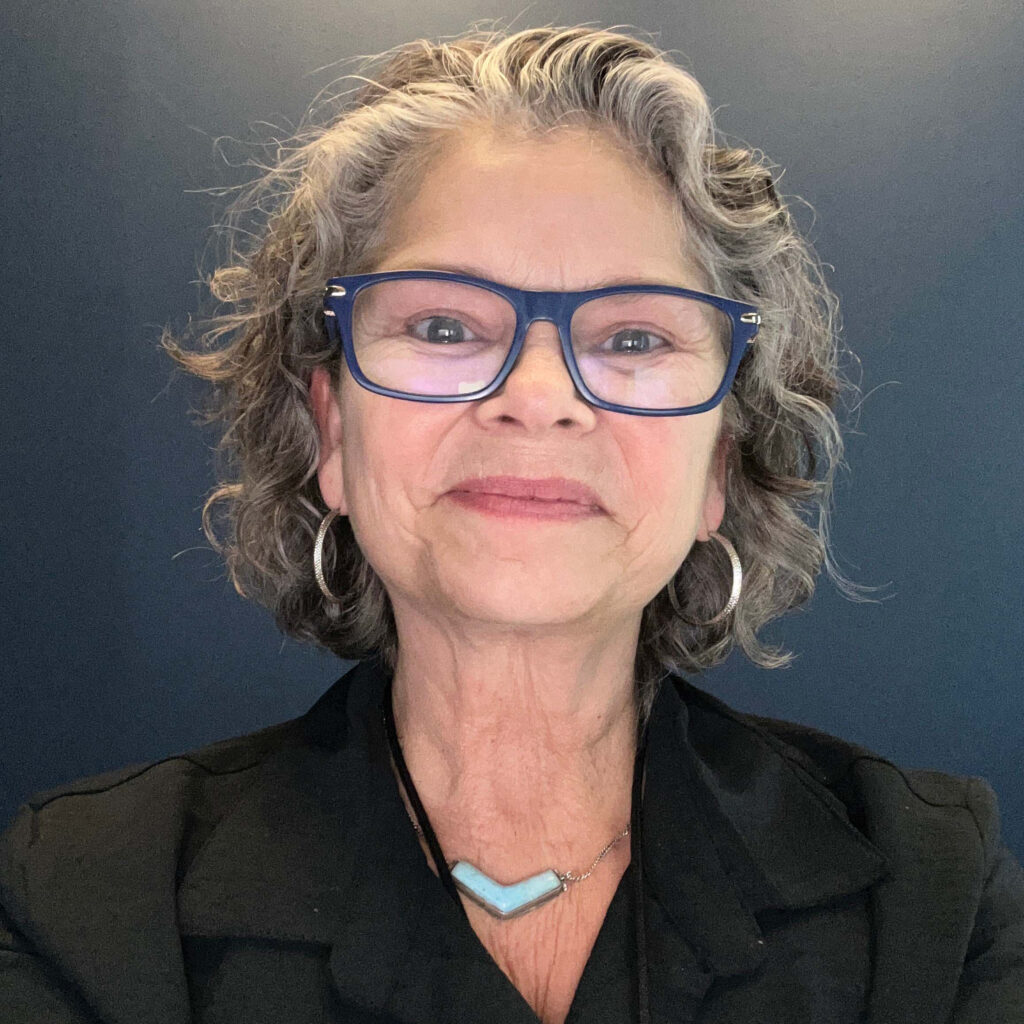
“The Ottawa Hospital’s Deaf Patient and Family Advisory Committee (PFAC) works alongside hospital staff and medical staff to address the unique challenges faced by Deaf and hard-of-hearing patients,” explains Beth.
This team of patient and family advisors is helping The Ottawa Hospital further bridge the communications gap between patients and their care providers.
The PFAC helped design a wallet card to assist patients and their loved ones with promptly obtaining an interpreter when they come through our doors.
Located at initial points of contact across various units, these cards provide instructions to our staff and medical staff on how to arrange an ASL or LSQ interpreter.
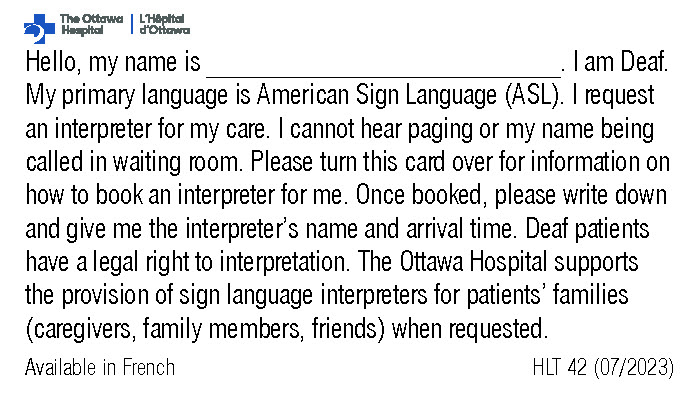
In collaboration with our health-care teams, the Deaf PFAC also co-designed an educational tool for our staff and medical staff, which teaches them important facts about Deaf people, Deaf culture and common misconceptions about caring for the Deaf.
And with an eye to the future, the Deaf PFAC is also working to enhance accessibility for Deaf and hard-of-hearing patients at our new campus.
“And there’s a lot more to look forward to in 2025 and beyond,” reports Beth. “Right now, we have a number of projects in development aimed at ensuring that every Deaf and hard-of-hearing patient receives the care and compassion they deserve.”

Support patient care and research at
The Ottawa Hospital
You might also like…
Living with chronic pain? This online tool offers help — and hope
The Power Over Pain Portal is a free virtual resource hub designed to help empower youth and adults living with chronic pain through education and peer support.
What to do in an emergency: New first aid video series on YouTube
Would you know what to do if you saw someone experience a stroke, heart attack or opioid overdose? We’ve launched a series of easy-to-follow videos on YouTube that walk you through how to respond to common first aid emergencies.
Flu season 101: A quick guide to keeping the sniffles away
Got two minutes? This short guide could help you make it through flu season without stocking up on tissues.
Aging well: Guidance for older adults
In this special video series for both older adults and their loved ones, geriatric care specialists from The Ottawa Hospital offer guidance on navigating common health-care challenges that may arise with aging.
From survivor to supporter: Peer volunteers bring hope to patients recovering from stroke
Drawing on their own lived experiences as stroke survivors or caregivers, volunteers with March of Dimes Canada’s After Stroke Hospital Peer Connections program offer emotional support to those just beginning their recovery journey. Discover the difference they’re making and learn about how you can request support for a loved one — or become a beacon of hope yourself.
How to stay safe around water this summer
Drowning can happen to anyone — even strong swimmers. Emergency physician Dr. Christian Vaillancourt debunks common myths about drowning, explains how to act quickly to save a life, and shares what you can do to keep yourself and your loved ones safe around water.


 To reset, hold the Ctrl key, then press 0.
To reset, hold the Ctrl key, then press 0.
